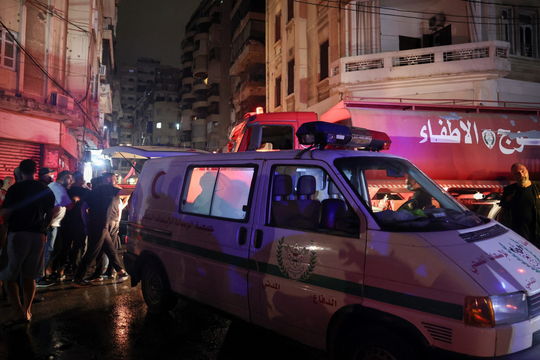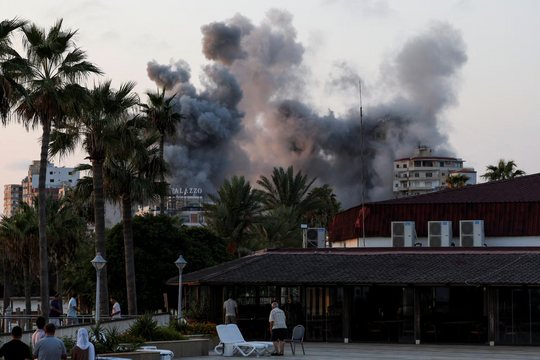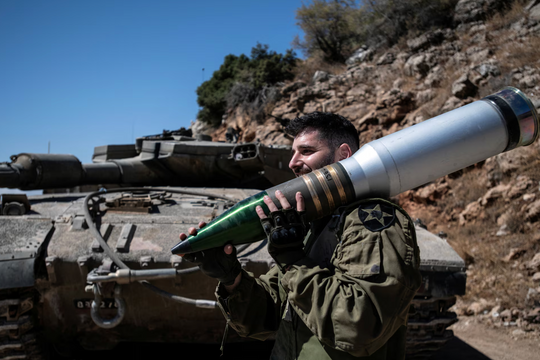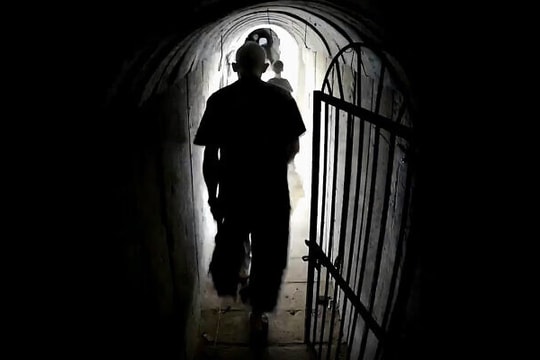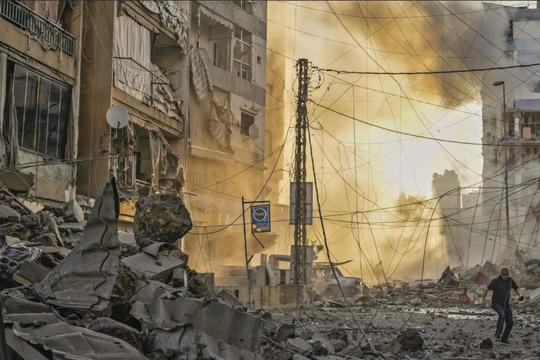Psychological 'scars' after the Beirut explosion
(Baonghean.vn) - It has been half a year since the explosion that rocked Beirut - the capital and largest city of Lebanon. The wounds on the flesh have gradually closed, life seems to continue with the same rhythm as before, but for the survivors, the psychological trauma still lingers, perhaps even until the end of their lives.
Terrible destructive power
Afterterrible explosion at Beirut portIn August 2020, Joana Dagher lay unconscious under the rubble of her apartment, having lost so much blood that she thought she was about to fall into the clutches of the Grim Reaper. She survived thanks to the courage of her husband who rushed to save her from the rubble, the kindness of a stranger who drove her to the hospital in a car also damaged by the explosion, and the close support of her sisters who helped her through the difficult days in the overwhelmed medical facility.
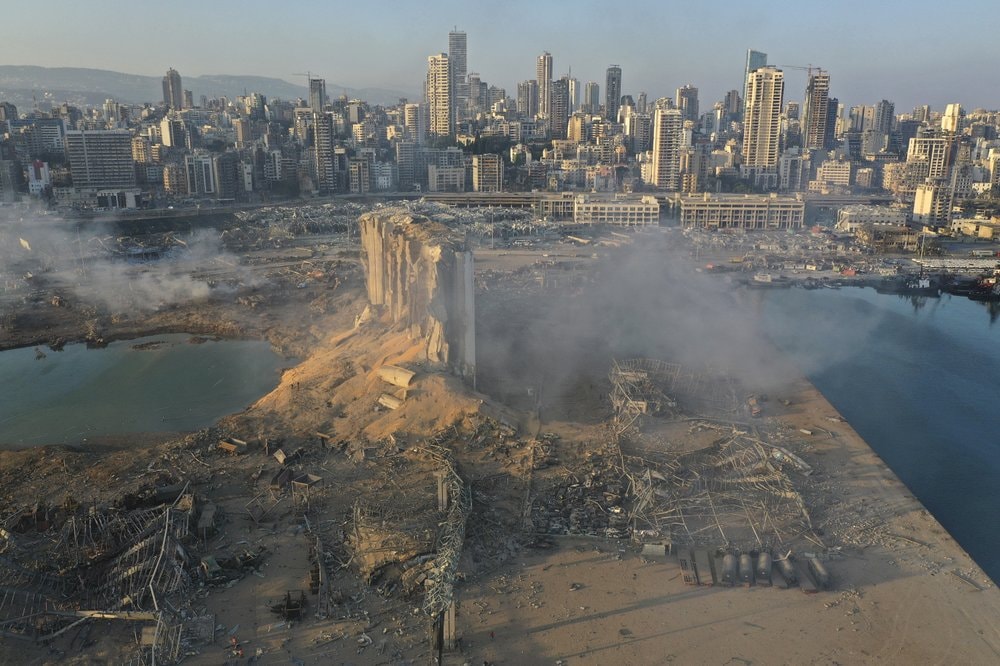 |
| The terrible devastation of the explosion at the seaport in Beirut, Lebanon. Photo: AP |
But Dagher couldn't remember any of it: The 33-year-old mother of two had suffered two months of amnesia due to injuries she suffered in the blast, including a traumatic brain injury and brain damage.
“I lost my life on August 4th. I lost my home, I lost my memory, I lost two neighbors. I no longer have mental health, and so I lost everything.”
The Beirut explosion, which killed more than 200 people and injured more than 6,000 others, left psychological trauma on an even larger scale in those who survived the event.
Dagher’s memory is slowly coming back. But another pain lingers. Although therapy is starting to help, she says she feels like things are never the same again. To many, including her sister Jihane, Dagher was a calm and independent person. Now she is prone to outbursts of anger and stress, emotional breakdowns, and even occasional aggression—all signs of post-traumatic stress disorder, experts say.
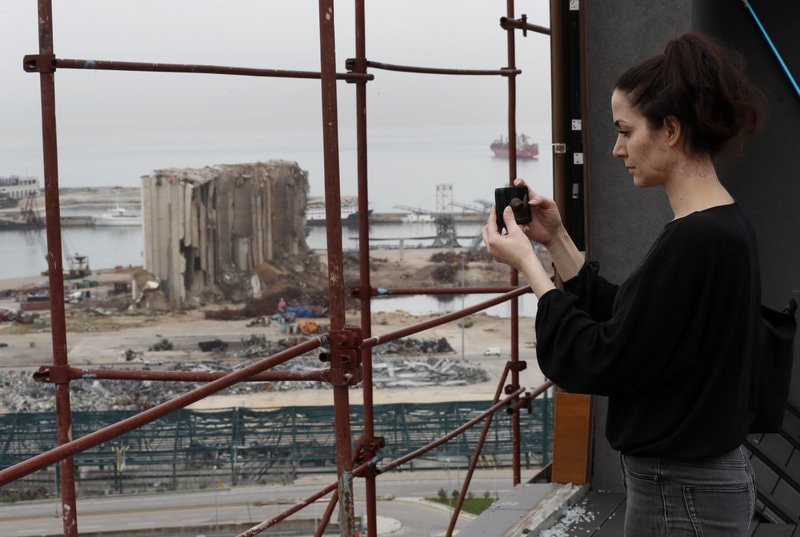 |
| Joana Dagher lost her memory for two months after the Beirut explosion. Photo: AP |
The explosion six months ago was caused by a spark that ignited and burned nearly 3,000 tons of ammonium nitrate stored in a port warehouse. Recorded as one of the largest non-nuclear explosions ever, the force of the blast ripped through Beirut, blowing people from their rooms and leaving them cut by shards of glass. Windows and doors were blown out kilometers from the epicenter.
Even in a country that has witnessed and experienced many wars and bombings like Lebanon, never before have so many people - tens of thousands of people - directly experienced a traumatic event at the same time, in the same space.
The wound is difficult to heal
The pain comes as Lebanese people are already under pressure from multiple crises, including an unprecedented economic downturn, the Covid-19 pandemic and a sense of helplessness after nationwide protests against corruption failed to achieve their goals.
“There is a very high level of anxiety and uncertainty in the community,” said Mia Atwi, a psychologist and president of Embrace, an organization that works to raise awareness and support for mental health. “The majority of the population is in a state of sadness that is bordering on depression.”
The demand for therapists is high, making it difficult to find a place to receive treatment, especially as many qualified and experienced professionals are gradually leaving Lebanon.
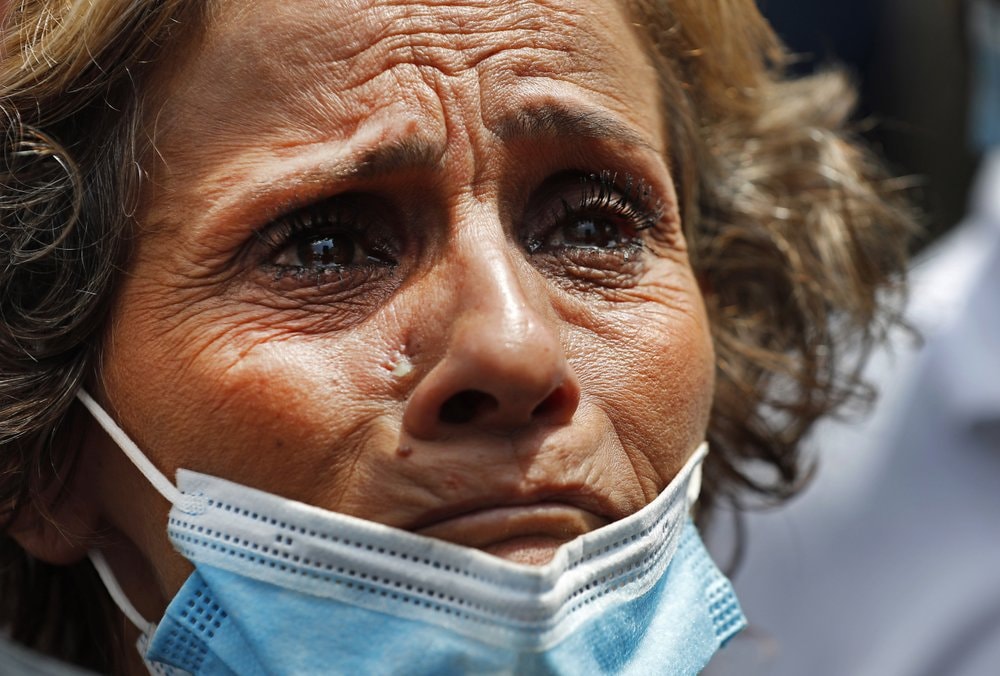 |
| The mental trauma still lingers in the survivors. Photo: AP |
Embrace expanded their clinic after the explosion last year, but they still have a waiting list of 60 patients. Since the incident six months ago, the organization has assisted 750 people, most of whom are experiencing post-explosion symptoms.depression and anxietyAccording to Embrace's phone statistics, 67% of the calls they have received since August 2020 have been from people in emotional turmoil, mental anguish, and 28% have expressed suicidal thoughts.
Even for those who did not suffer physical injuries, the blast left deep psychological scars. For example, 33-year-old Najla Fadel was miraculously unharmed when the blast shattered her windows and seriously injured the babysitter she hired to care for her children. Fadel, who was in her second trimester and was pregnant with her second child, managed to get the woman, covered in blood, to the hospital on time. But since then, Fadel has had recurring nightmares. She often wakes in the middle of the night, her heart pounding, thinking the blast is happening again. “I jump at any noise and start looking for a place to hide,” she said. The worst thing for her now is the thunder during thunderstorms and the sound of Israeli warplanes flying over Lebanon. “Just a few nights ago, when the planes were flying over Beirut, I slept in the hallway,” she recalls. “That way I was closer to the children’s room, I could grab them faster and run if something happened.”
Fadel has been seeing a psychologist for some time. Many others have not received help. “There are a lot of people who are neglecting their mental health or don’t know what to do,” said Souraya Frem, president and co-founder of Cenacle De Lumiere, an organization that began providing mental health support in the city after the Beirut explosion. “People are struggling with poverty, trying to make ends meet, and so they don’t see mental health as a priority.”
From Perth, Australia, where Sarah Copland moved after the blast, she said she had to schedule two psychologists to help her come to terms with her loss. In the blast, a shard of glass ripped through the chest of her 2-year-old son, Isaac, ending his short life. She said that day was also the time when her life felt like it was at a dead end.
“The last image of my little son was something a mother should never have to witness. It appeared in my mind when I least expected it – we were about to do something, and it appeared. It was so heartbreaking…”
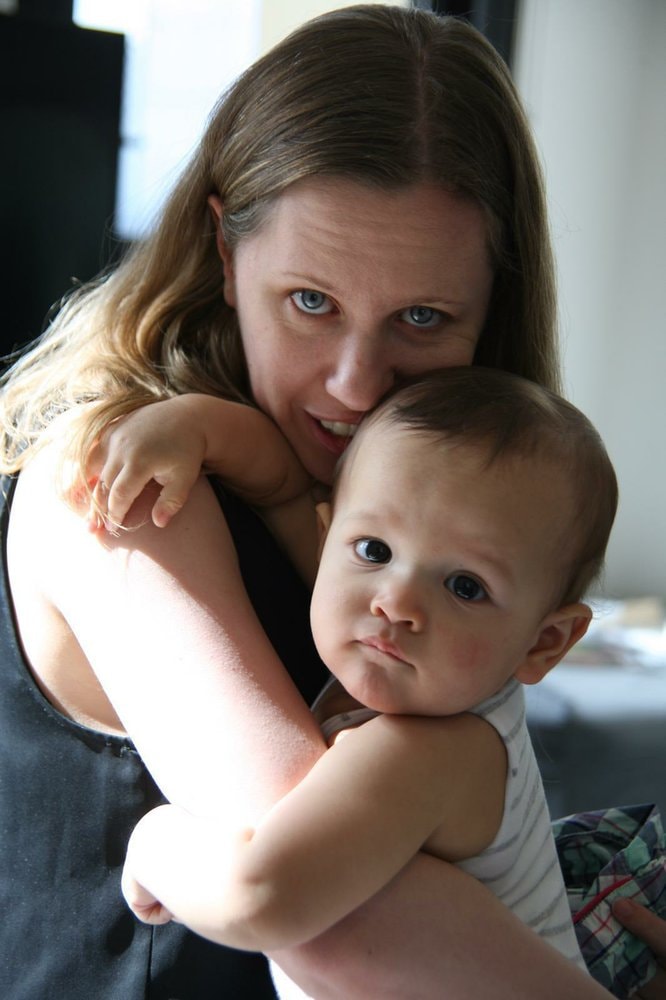 |
| Sarah Copland lost her son Isaac in the explosion. Photo: AP |
Copland was working for the United Nations in Beirut at the time. Now, thousands of miles away from Lebanon, the memory still haunts her. “The sight or sound of breaking glass makes me nervous,” she says. “Lying in bed at night, I hear the wind banging on the window and it freaks me out. I freeze because it reminds me of the sound of the window whistling when the explosion happened.”
Copland’s two-month-old son, Ethan, is the driving force that keeps her going, but for her, the deep pain has not subsided. “Hearing children scream, even screams of joy, reminds me of being in the hospital, of Isaac and the children screaming in pain,” she said.
Meanwhile, Joana Dagher, now living in a temporary apartment on the outskirts of Beirut, has decided to stay in Lebanon, even as thousands of others are trying to leave: “I want to stay close to the people I love, close to my family, not leave my home or my country.” But for her, like most survivors of that horrific day, there is still a lingering fear that will never let go: “The fear of losing the people I love is greater than ever.”



